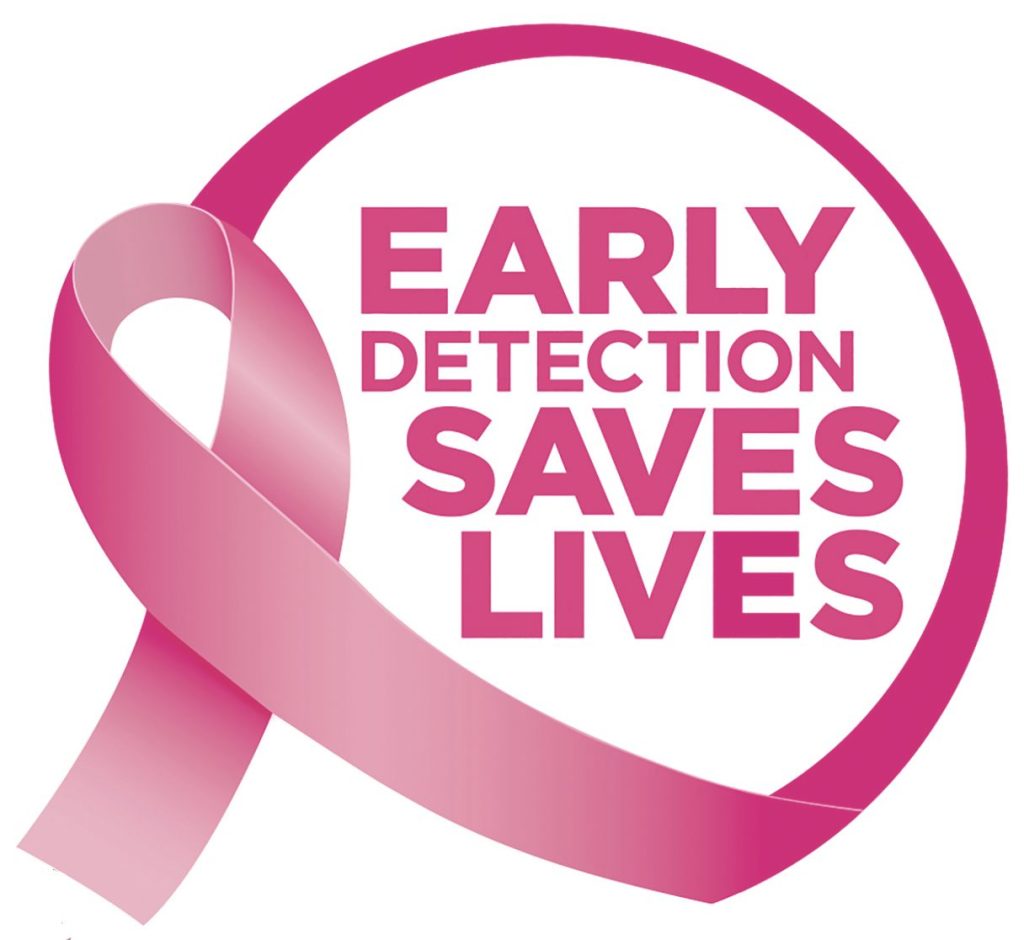
Breast Cancer Awareness Month is observed annually in October to raise awareness about breast cancer and to encourage women to get screened. Breast cancer is the second most common cancer among women in the United States, behind only skin cancer. One in eight women will develop breast cancer at some point in their lifetime.
Early detection is key to successful treatment of breast cancer. When breast cancer is detected early, it is more likely to be treatable and less likely to spread. That’s why it’s important for women to get regular mammograms and clinical breast exams.
What is breast cancer?
Breast cancer is a type of cancer that develops in the breast tissue. It can start in the ducts, which are the tubes that carry milk to the nipple, or in the lobules, which are the glands that produce milk. Breast cancer can be invasive, meaning it has spread to other parts of the body, or non-invasive, meaning it has not spread beyond the breast.
Risk factors for breast cancer
There are a number of risk factors for breast cancer, including:
- Age: Breast cancer risk increases with age. Most cases of breast cancer occur in women over the age of 50.
- Family history: Women with a family history of breast cancer are at an increased risk for developing the disease.
- Genetic mutations: Certain genetic mutations can increase the risk of breast cancer.
- Breast density: Women with dense breasts have a higher risk of developing breast cancer.
- Hormones: Exposure to certain hormones, such as estrogen and progesterone, can increase the risk of breast cancer.
- Lifestyle factors: Certain lifestyle factors, such as obesity, alcohol consumption, and lack of exercise, can increase the risk of breast cancer.
Symptoms of breast cancer
The most common symptom of breast cancer is a lump in the breast. Other symptoms may include:
- Thickening or swelling of a part of the breast
- Nipple discharge
- Change in the size or shape of the breast
- Pain in the nipple or breast
- Red, scaly, or irritated skin on the nipple or breast
- Dimpled skin on the breast
- Inverted nipple
If you experience any of these symptoms, it is important to see a doctor right away.
Screening for breast cancer
There are two main types of breast cancer screening tests: mammograms and clinical breast exams.
- Mammograms: Mammograms are X-rays of the breast that can detect breast cancer early, before it can be felt. Mammograms are recommended for all women over the age of 40, but women with a family history of breast cancer or other risk factors may need to start getting mammograms at an earlier age.
- Clinical breast exams: Clinical breast exams are physical exams of the breasts that are performed by a healthcare professional. Clinical breast exams are recommended for all women over the age of 20, and they should be done every year.
Treatment for breast cancer
The best treatment for breast cancer depends on a number of factors, including the stage of the cancer, the type of cancer, and the patient’s overall health. Treatment options for breast cancer may include surgery, radiation therapy, chemotherapy, hormone therapy, and targeted therapy.
Breast Cancer Awareness Month
Breast Cancer Awareness Month is an important time to raise awareness about breast cancer and to encourage women to get screened. Early detection is key to successful treatment, so it’s important to talk to your doctor about your risk factors for breast cancer and to get regular mammograms and clinical breast exams.
Here are some ways to celebrate Breast Cancer Awareness Month:
- Get screened for breast cancer. If you are over the age of 40, or if you have a family history of breast cancer or other risk factors, talk to your doctor about getting a mammogram and clinical breast exam.
- Educate yourself about breast cancer. The more you know about breast cancer, the better equipped you will be to make informed decisions about your health. There are many resources available online and from your doctor.
- Support breast cancer research and awareness organizations. There are many organizations that are working to raise awareness about breast cancer and to find new treatments and cures. You can support these organizations by donating money, volunteering your time, or participating in fundraising events.
- Wear pink. Wearing pink is a great way to show your support for breast cancer awareness. You can wear pink clothing, accessories, or even just a pink ribbon.
- Talk to your friends and family about breast cancer. The more people who are aware of breast cancer, the more likely they are to get screened early. Talk to your friends and family about the importance of breast cancer screening and early detection.
Breast Cancer Awareness Month is a time to come together as a community to raise awareness.
Mammograms are free for women over the age of 40 with most health insurance plans in the United States. The Affordable Care Act (ACA) requires all health plans to cover the cost of a screening mammogram every one or two years for women over 40 who do not already have breast cancer symptoms.
If you do not have health insurance, or if your health insurance does not cover screening mammograms, there are a number of resources available to help you get a free or low-cost mammogram. Some of these resources include:
- The National Breast and Cervical Cancer Early Detection Program (NBCCEDP) provides free or low-cost breast cancer screening services to low-income, uninsured, and underinsured women aged 40-64.
- The Susan G. Komen Foundation offers a number of programs to help women get free or low-cost mammograms, including the Komen Affiliate Network and the Komen Screenings Program.
- Many local health departments and community health centers offer free or low-cost mammograms.
To find a free or low-cost mammogram in your area, you can visit the website of the National Cancer Institute or the Susan G. Komen Foundation.
Here are some additional tips for getting a free or low-cost mammogram:
- Ask your doctor or other healthcare provider for a referral. They may be able to tell you about local resources for free or low-cost mammograms.
- Contact your local health department or community health center. They may offer free or low-cost mammograms, or they may be able to refer you to a program that does.
- Check with your state’s breast cancer awareness program. Many states have programs that help women get free or low-cost mammograms.
- Search online for free or low-cost mammograms in your area. There are a number of websites that list resources for free or low-cost mammograms.
Remember, early detection is key to successful treatment of breast cancer. If you are over the age of 40, talk to your doctor about getting a mammogram.
